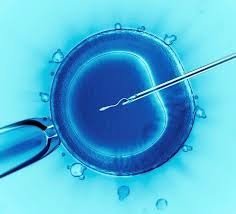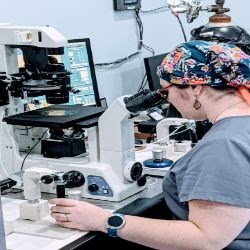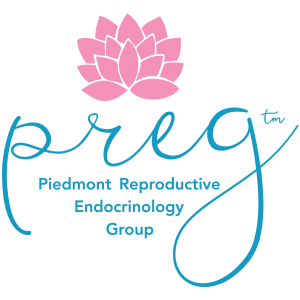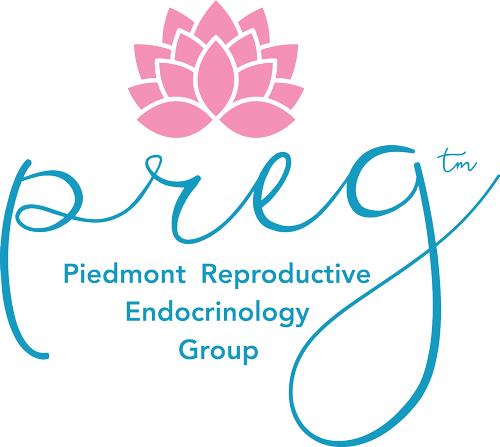PREG works with a variety of experts regarding family and reproductive endocrinology. We recently sat down with attorney James Fletcher Thompson of Thompson Dove Law Group in Spartanburg, South Carolina to discuss areas of legal counsel and the law surrounding fertility and reproductive medicine. Thompson Dove Law Group focuses on building families, offering services in the areas of adoption, custody, and assisted reproduction services. The highly respected firm is a leader in these areas of law in South Carolina and the southeast.
 Mr. Thompson has been in practice since 1989 and is a highly respected and experienced attorney in the field of family law. He has been a fellow of the Academy of Adoption & Assisted Reproduction Attorneys since 1993. He served on the Academy’s Board of Trustees from 2011-2015 and chaired the Assisted Reproduction Ethics Code Review Committee from 2015-2016. He is a Life Fellow of the South Carolina Bar Foundation and is a popular lecturer on family law issues. He has authored numerous scholarly articles, a book, and legislation pertaining to his areas of practice. He is a graduate of Vanderbilt University and the University of South Carolina School of Law.
Mr. Thompson has been in practice since 1989 and is a highly respected and experienced attorney in the field of family law. He has been a fellow of the Academy of Adoption & Assisted Reproduction Attorneys since 1993. He served on the Academy’s Board of Trustees from 2011-2015 and chaired the Assisted Reproduction Ethics Code Review Committee from 2015-2016. He is a Life Fellow of the South Carolina Bar Foundation and is a popular lecturer on family law issues. He has authored numerous scholarly articles, a book, and legislation pertaining to his areas of practice. He is a graduate of Vanderbilt University and the University of South Carolina School of Law.
Please describe your background and particularly your interest in reproductive care and treatment law?
I have been an attorney since 1989. My first surrogacy case was in 1994. Over the years, I’ve gained the most personal satisfaction from building families through assisted reproduction and adoption. It is gratifying to me to help families navigate the same complex path to parenthood that my wife and I successfully pursued.
What are the top 3-5 questions involved with couples trying to conceive through IVF or surrogacy?
1. Will my family be protected under South Carolina law?
2. How do families afford surrogacy?
3. Is surrogacy legal in South Carolina?
4. How do you screen surrogates?
What do prospective clients need to know about IVF laws and governance?
At this time, South Carolina does not have any specific statutes regarding egg, sperm, or embryo donation, nor does it have any statutes regarding gestational surrogacy. We have been able to use case law in order to obtain judgments protecting the rights of families conceived with the assistance of gamete donation or gestational surrogacy. However, it is important that families understand this legal process, the legal risks, as well as the estimated legal fees and costs upfront so that they are prepared. Many families contact us after conceiving or even after giving birth, which can make the process more difficult and costly. At times, their legal options may be limited and we may not be able to achieve the outcome they want. As a result, it is important that they understand the legal process and which options are available prior to conceiving.
What about same-sex couples?
Although South Carolina has recognized same-sex marriage, the statutes have not been updated so as to extend the marital presumptions to same-sex families. As a result, when a couple is conceiving via Co-Maternity or Reciprocal Maternity, there are legal steps that are recommended by the National Center for Lesbian Rights (NCLR) and the American Society for Reproductive Medicine (ASRM) to ensure that both parents have joint and equal parental rights and to protect the integrity of their families in the event of death or divorce.
 What if an egg or embryo donor has second thoughts about their donation? What are the legal ramifications?
What if an egg or embryo donor has second thoughts about their donation? What are the legal ramifications?
This will depend on what they signed prior to the donation, as well as whether the Intended Parents completed any post-birth legal processes to terminate any potential parental rights they may allege to have. As of right now, there are no egg or embryo donation statutes in South Carolina that terminate any alleged potential rights of a donor. That is why it may be recommended that the Intended Parents complete a legal action to confirm their exclusive parental rights post-birth. It is important that the donors, as well as the Intended Parents, consult with separate legal counsel to understand their legal rights and obligations if any.
How can couples be assured of protection under the law in terms of donations whether it’s eggs, sperm, or embryos?
It is important to consult with an attorney, as the laws can vary from state to state, and many states, like South Carolina, do not have any statutory protection for egg, sperm, or embryo donation. There are legal steps the Intended Parents’ attorney can take in order to ensure that their parental rights are protected.
What is the first thing you counsel couples about regarding infertility law and care?
This varies depending on what method of assisted reproduction they are pursuing. However, every consultation will focus on what protections they may or may not have under South Carolina law, and what legal steps are necessary or recommended in order to establish or confirm their parental rights.
 What are the legal ramifications for a couple who has frozen embryos/sperm and has engaged in divorce after fertility treatment?
What are the legal ramifications for a couple who has frozen embryos/sperm and has engaged in divorce after fertility treatment?
If divorcing, it is important that the couple’s divorce attorney(s) consult with an Assisted Reproductive Law attorney in order to ensure that the Divorce Judgment dictates who is to have legal custody and ownership of the embryos, whether that person can use the embryos after the divorce, whether any children born after the divorce will still be considered a “child of the marriage” (including visitation, custody, and child support orders), as well as whether the parent receiving the embryos can donate the embryos to another family.
What are some basic things couples/individuals need to consider when it comes to fertility treatment?
Besides consulting with a Reproductive Law attorney, they should also consult with an estate attorney. In most states, the laws are not always clear regarding what happens to any cryopreserved eggs, sperm, or embryos if one parent passes away. If the surviving parent wants to use the cryopreserved gametes, they will likely need some documentation proving that the deceased parent had consented to such use post-mortem.
How complicated is the law in SC/NC in terms of paternity and ownership disputes regarding fertility care, frozen embryos, eggs, sperm, etc?
The laws are actually very complicated, as there are no statutory provisions. As a result, the attorneys have to look at case law and various other statutes to prepare a legal argument that a court can base its judgment on that will protect the integrity of the family.
What is the best legal counsel you can offer individuals or couples engaging in reproductive treatment and care?
 If the individuals or couples are using the third-party assisted reproduction (e.g., gestational surrogacy, egg donation, etc.), are unmarried, or are members of the LGBTQ+ community, they should consult with a Reproductive Law attorney prior to investing in the medical treatment so that they can understand the legal steps that may be necessary or recommended to protect their family, including the costs associated with those legal steps so that they can make a knowledgeable and informed decision regarding building a family. There are times that couples are surprised to learn that they cannot get their significant other’s name on the birth certificate without a court order. It is important to understand the process and costs upfront.
If the individuals or couples are using the third-party assisted reproduction (e.g., gestational surrogacy, egg donation, etc.), are unmarried, or are members of the LGBTQ+ community, they should consult with a Reproductive Law attorney prior to investing in the medical treatment so that they can understand the legal steps that may be necessary or recommended to protect their family, including the costs associated with those legal steps so that they can make a knowledgeable and informed decision regarding building a family. There are times that couples are surprised to learn that they cannot get their significant other’s name on the birth certificate without a court order. It is important to understand the process and costs upfront.
If you have legal questions regarding reproductive laws, adoption, family services, etc., contact Thompson Dove Law Group:
https://www.facebook.com/TDLawGroup
https://www.instagram.com/tdlawgroup/
“I don’t remember who said this, but there really are places in the heart you don’t even know exist until you love a child.” ― Anne Lamott, Operating Instructions: A Journal of My Son’s First Year
 PREG has 3 IVF Centers (Greenville, Columbia & Low Country) with offices in Asheville & Spartanburg. Our goal is to help build families, one baby, at a time!
PREG has 3 IVF Centers (Greenville, Columbia & Low Country) with offices in Asheville & Spartanburg. Our goal is to help build families, one baby, at a time!






